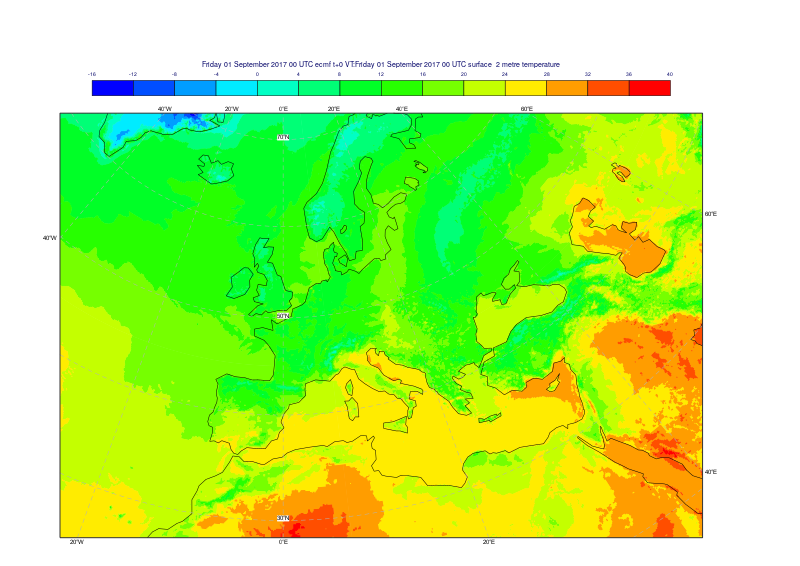| Warning |
|---|
MARS/MIR will become the default client at ECMWF on 29 January 2019 at 10:00 UTC |
| Tip | ||||||
|---|---|---|---|---|---|---|
The new MARS client with the MIR interpolation library is used by default at ECMWF since 29 January 2019. now considered ready for production and suitable for operational use. It is not yet the default version. You can use the new MIR-enabled MARS client on any ECMWF computing platform with :
If you are using the the ECMWF WebAPI you can test it by adding an extra keyword to your requests:
If using Metview, you can use MIR interpolation with the following commands before starting it:
You are encouraged to test this new version of the MARS client and report any issues to servicedesk@ecmwf.int. no extra options or settings. Please report any issues with this new version of the MARS client to servicedesk@ecmwf.int. |
MIR stands for Meteorological Interpolation and MIR stands for Meteorological Interpolation and Regridding and is a library of routines for interpolation and regridding of meteorological fields. This new piece of software is replacing the veteran EMOSLIB when it comes to perform those operations in MARS. Beyond this, MIR’s flexible design facilitates scalability improvements and additional features. These include efficiency gains, a high degree of user configurability, and support for a wider range of grids than in the current package. See the related article in the ECMWF newsletter no.152 for a more complete description of this new library.
...
| Table of Contents | ||
|---|---|---|
|
News
29 January 2019
MARS/MIR becomes the default version at ECMWF. The old MARS/EMOSLIB version can still be accessed specifying the relevant options. See below for details.
1 November 1 November 2018
MARS/MIR (1.0.0) is released. This new version of MARS/MIR is the first version considered ready for operational use.
...
- Improvements have been made to enhance the performance of spectral to grid transformations when the target is a subarea.
- Interpolation of unclassified parameters will fail (this behaviour was reverted in 22 August).
Important dates
- 1 November 2018: MARS/MIR is considered ready for operations, but it is not the default version at ECMWF.
- 29 January 2019: MARS/MIR becomes the default version at ECMWF, with the exact date to be confirmed at a later stage. The old MARS/EMOSLIB will still be accessible through mars -e, but there will be no further updates to it.
Questions and Answers
Questions and Answers
| Expand | ||
|---|---|---|
| ||
The EMOSLIB interpolation package was written in the 1980s and much has changed since then: the model grid resolution has steadily increased, a variety of grid | ||
| Expand | ||
| ||
The EMOSLIB interpolation package was written in the 1980s and much has changed since then: the model grid resolution has steadily increased, a variety of grid types have been introduced, and many new parameters have been added over the years, often associated with different processing requirements. Both software and hardware technologies, such as programming languages, design paradigms, supporting libraries and hardware architectures, have evolved significantly. These aspects, together with new numerical methods and ECMWF's improved understanding of user requirements, have prompted ECMWF to design the new, extensible and easy-to-maintain MIR package |
...
| Expand | ||
|---|---|---|
| ||
No, all existing valid MARS requests will also work when using MIR. Some new keywords will be introduced for new features such as:
. Some new keywords are introduced for new features such as:
|
| Expand | |||||
|---|---|---|---|---|---|
| |||||
You don't need to specify any specific options, as it is the current default. | |||||
| Expand | |||||
| |||||
You can replace your standard mars calls adding the extra option:
If you are using the the ECMWF WebAPI you can test it by adding an extra keyword to your requests:
If using Metview, you can use MIR interpolation with the following commands before starting it: No Format | |
| Expand | ||||||||
|---|---|---|---|---|---|---|---|---|
| ||||||||
You can replace your standard mars calls adding the extra option:
If using the WebAPI, you can add the keyword:
If using Metview greater than 5.4, you need to define the environment variable:
|
| Expand | ||||||
|---|---|---|---|---|---|---|
| ||||||
MIR has undergone a thorough validation process and tests to ensure its quality and correctness. However, since the implementations and strategies used in both packages are different, you may see some differences when using MIR instead of EMOSLIB. How significant those differences will be will depend on each specific case. Here is an example. The same 2m temperature field on a native O1280 grid has been interpolated to a 0.1/0.1 latitude-longitude grid using both methods. Plots have been produced for both, together with a third one with the differences greater than half a degree Celsius between them.
|
...


